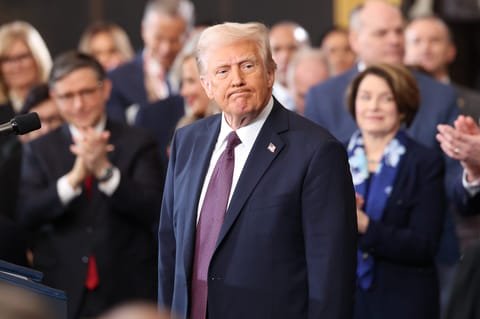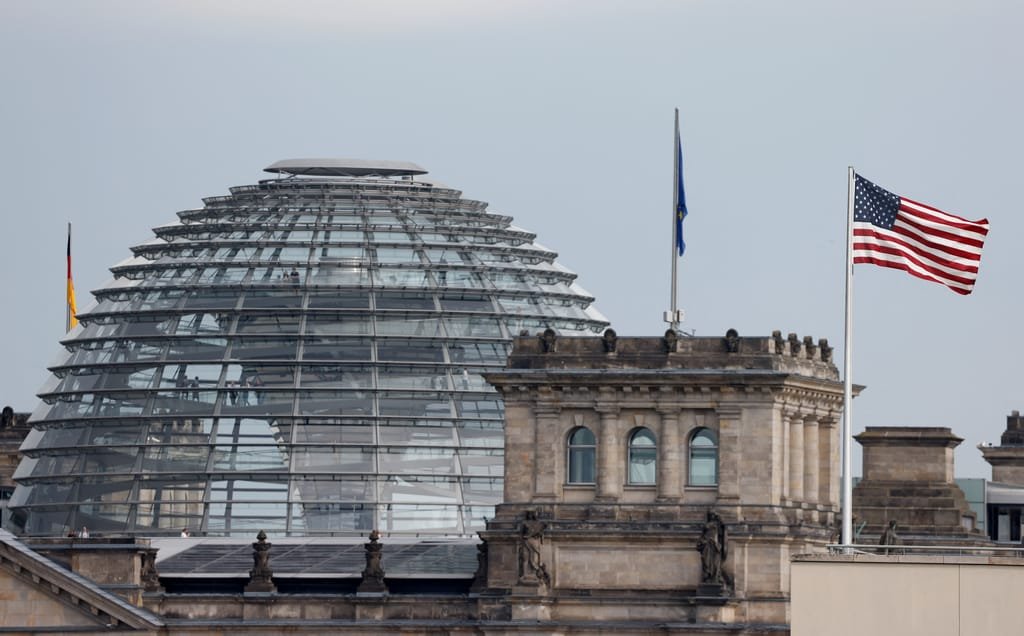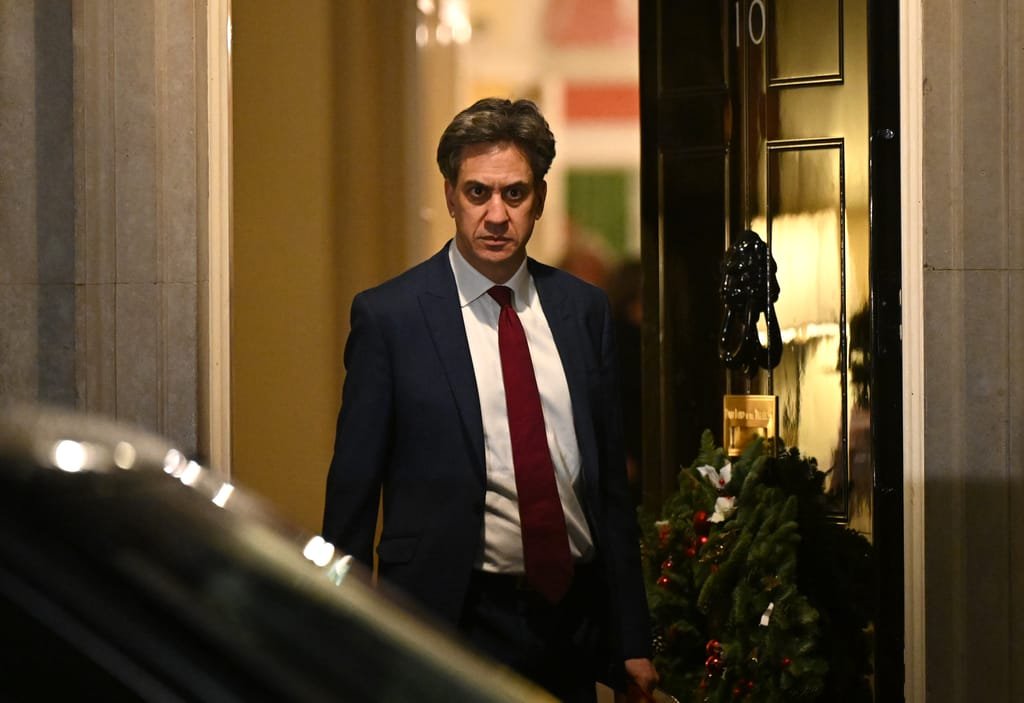Brussels is poised to fine fossil fuel firms for excessive methane emissions. The U.S. president won’t like that.

BRUSSELS — A little-known set of European Union rules designed to fight climate change are creating a looming hurdle between Europe and any effort to buy more United States gas, industry experts and politicians are warning.
U.S. President Donald Trump has said that if the EU doesn’t want to face crippling tariffs on trade, “the one thing they can do quickly is buy our oil and gas.” But while EU officials have confirmed they are open to negotiating with the White House, experts are pointing out that upcoming emissions rules may get in the way.
In 2027, EU countries will start penalizing companies when they import fuel that doesn’t comply with new methane emissions rules. Those measures were developed in partnership with the Biden administration. But Trump appears keen to reverse the requirements on his end. If U.S. firms use that as an opening to scale back methane efforts, that could create extra fees when their gas is sold into the EU market.
The situation creates “potential tension,” said Matteo Mazzoni, director of energy analytics at commodities intelligence firm ICIS — especially for someone like Trump, who sees things through a tariff lens.
The measures, Mazzoni argued, “effectively act as a border tariff on U.S. exports and add an administrative burden and operating costs on exporters and importers.”
Hot air
Methane, which frequently leaks out during fossil fuel production and delivery, is particularly damaging to the environment. Over 20 years, the gas heats the atmosphere 84 times more powerfully than carbon dioxide.
In response, officials have started to create stricter guidelines for both tracking and restricting methane emissions.
Starting this year, fuel imports into the EU will have to come with comprehensive data on the amount of methane given off during their production. In two years, failure to meet the bloc’s criteria will trigger a “system of penalties” that could include “penalty payments or fines” for exporters.
Trump is headed in the exact opposite direction, promising to boost fossil fuel production from already record-high levels and eradicate everything standing in the way.
On Monday, he revoked a slew of environmental orders and issued a directive to roll back any measures that « burden the development of domestic energy resources. » That likely means methane and carbon dioxide regulations will be weakened.

The approach will inevitably have implications for the EU’s looming regulations. European Commission spokesperson Anna-Kaisa Itkonen told POLITICO that expanded imports of American gas « would fall under our methane regulation » and said there were no plans for an exemption.
They’re not the only upcoming EU rules that could trigger Trump’s ire in a trade discussion. Starting in 2026, the EU will impose a fee on imports of key carbon-intensive goods like steel and fertilizer if they don’t meet EU standards — effectively a carbon border tax.
The EU’s policy of levying fees on foreign emissions is “a potential contentious issue as it may be interpreted as a retaliation for increased tariffs” that Trump has promised to impose, said Leslie Palti-Guzman, a senior fellow at the Center for Strategic and International Studies.
Red tape, red flag
Observers are also watching to see whether Trump kills a little-known bureaucratic effort at the Energy Department to create a framework for monitoring and reporting the methane emissions from liquefied natural gas shipments — the kind Europe receives.
The idea is that such standardized data would make it easier for buyers to trust sellers on how much greenhouse gas had been emitted in the making and delivery of the fuel.
If that initiative dies, U.S. LNG producers are going to have a much harder time convincing European buyers their gas is as clean as advertised, said Kevin Book, director of consulting firm ClearView.
“If that’s one of the agreements they dump in [Trump’s] climate order, it creates headwinds for U.S. exporters,” Book said. “That’s a key question for everyone here trying to sell into a regulated market over there. Europe has penalties that begin to accrue in 2027, which is practically tomorrow in LNG time.”
Despite that, Jutta Paulus, a German Greens European Parliament member who worked on the EU’s methane rules, insisted they do not constitute tariffs and would only see financial penalties if U.S. companies actually used Trump’s red tape bonfire to fall below internationally recognized standards.
“The methane regulation ensures reliable supplies and reduces wasting energy and money,” Paulus said. “A businessman like President Trump will also be interested in the option to sell gas and oil to a financially strong EU where a higher price can be realized than in Southeast Asia. In any case, it is not the U.S. president who can force private companies to ignore standards that would enable them to score higher profits.”
However, opponents of the EU’s climate legislation are already leaping on the potential row to call for a policy reversal.
“The EU’s methane regulation, as part of the Green Deal, represents a clear example of regulatory overreach that threatens both European and American interests,” said Filip Turek, a European Parliament member from Czechia’s hard-right Motorists party, which campaigns for cheaper fuel.
“European consumers and industries are already struggling under the weight of aggressive environmental regulations,” said Turek, who was invited to attend Trump’s inauguration events in Washington. “Adding de facto tariffs through methane regulations would only exacerbate these economic pressures while potentially triggering reciprocal measures that benefit neither side.”
Gabriel Gavin reported from Brussels. Ben Lefebvre reported from Washington.





